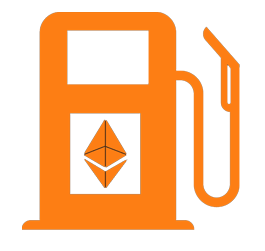Potential costs, fees, and royalties

1. Purchase Price
- NFT Price: This is the base cost of the NFT itself, determined by the seller. It can range from a few dollars to millions, depending on the perceived value, rarity, and demand for the specific NFT.
2. Gas Fees
- Blockchain Transaction Fees: Known as “gas fees” on the Ethereum network (NFT-tradingcards.biz uses the POLYGON Chain and MATIC token), these are fees paid to miners or validators to process and confirm the transaction on the blockchain. Gas fees can vary significantly depending on network congestion and the complexity of the transaction.
- Variable Costs: Gas fees can fluctuate widely, from just a few dollars during low network activity to hundreds of dollars during periods of high demand.
3. Platform Fees
- Marketplace Fee: NFT marketplaces (like NFT-tradingcards.biz) charge a fee for facilitating the sale. This fee is often a percentage of the sale price and is deducted either from the seller’s proceeds or added to the buyer’s cost.
- Example: On NFT-tradingcards.biz, the standard platform fee is 2.5% of the sale price, which is taken from the seller’s earnings.
4. Creator Royalties
- Royalty Fees: Many NFTs are programmed to automatically pay a royalty to the original creator each time the NFT is resold. This royalty is typically a percentage of the resale price and can range from 5% to 10% or more, depending on how the smart contract is set up.
- Ongoing Costs: These royalties are paid by the seller upon resale, but they affect the resale value and net earnings from the NFT.
5. Payment Processing Fees
- Credit Card or Fiat Conversion Fees: If the platform allows purchases with fiat currency (like USD) rather than cryptocurrency, there may be additional fees for processing credit card payments or converting fiat to crypto.
- Currency Conversion Costs: If you’re buying an NFT in a cryptocurrency different from what you hold, you may incur currency conversion fees from your wallet or exchange.
6. Listing and Minting Fees
- Minting Costs: If you’re minting (creating) your own NFT to sell, there’s typically a cost associated with this process. Minting involves recording the NFT on the blockchain, which incurs a gas fee.
- Listing Fees: Some platforms charge a fee to list an NFT for sale, especially if you’re listing it for the first time.
7. Storage Fees (Optional)
- Off-Chain Storage: Some NFTs store their actual content (like images or videos) off-chain, on decentralized storage networks like IPFS (InterPlanetary File System). Depending on the platform or service used, there might be fees associated with storing this data.
- On-Chain Costs: While less common, storing data directly on the blockchain (on-chain) can be very expensive due to the higher gas fees involved.
8. Other Hidden Costs
- Account Setup Fees: Some platforms may charge a one-time fee to set up your account or wallet on their service, though this is becoming less common.
- Bid Fees: On some auction-based platforms, placing a bid may incur a fee, especially if you’re outbid and need to adjust your offer.
Summary of Costs
When buying an NFT, the total cost to the buyer includes the NFT’s purchase price, gas fees, and possibly additional marketplace or payment processing fees. If you’re involved in reselling an NFT, creator royalties will also be a factor. Additionally, if you’re minting or listing an NFT, there may be associated costs. Being aware of these various fees can help you better estimate the total cost and potential return on investment when participating in the NFT market.

Leave a Reply